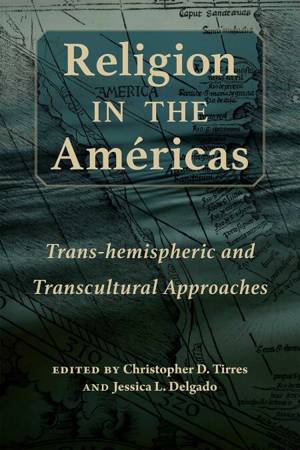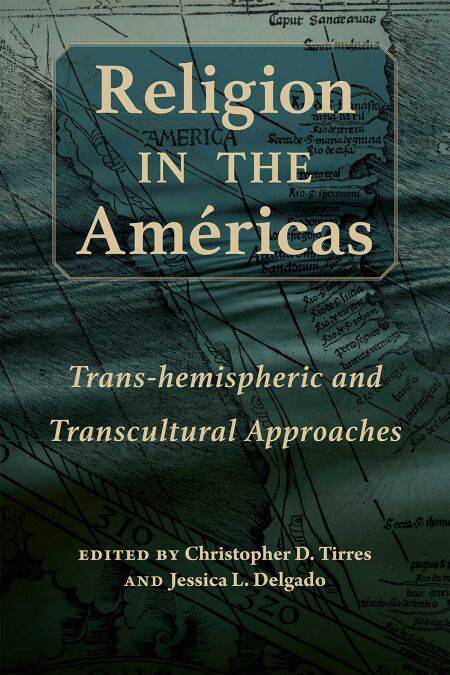
- Afhalen na 1 uur in een winkel met voorraad
- Gratis thuislevering in België vanaf € 30
- Ruim aanbod met 7 miljoen producten
- Afhalen na 1 uur in een winkel met voorraad
- Gratis thuislevering in België vanaf € 30
- Ruim aanbod met 7 miljoen producten
Zoeken
Religion in the Américas E-BOOK
Trans-hemispheric and Transcultural Approaches
€ 25,71
+ 25 punten
Uitvoering
Omschrijving
Religion in the Américas explores the fluid, dynamic, and complex nature of religion across Latin America and its diasporic communities in the United States. Utilizing a transdisciplinary and trans-hemispheric lens, this groundbreaking anthology transcends traditional scholarly boundaries—geographical, disciplinary, and temporal—as it explores ideas and cultural practices that share a common history of Iberian colonialism.
This robust collection of essays forges a dialogue among scholars throughout the Americas who represent a variety of disciplinary perspectives. The book is divided into five sections: “Fluidity in the Afro-Latine Diaspora,” “Aesthetics in Las Américas,” “Critical Feminist Epistemologies and Activism,” “The Limits of Institutional Religion,” and “Spiritual Invasions and Contagions.” Throughout the volume, the concept of “experience” serves as a foundational lens, as chapters examine how individuals and communities actively interpret and negotiate their realities within diverse historical and social contexts.
Focusing on religion as a culturally conditioned epistemic practice, Religion in the Américas invites readers to engage with religion in the Americas on multiple, intersecting levels of knowledge, including local insights, scholarly analyses, and the positionality and queries of readers themselves. The book’s dialogical approach encourages not only continual reevaluation of the complexities of religious experience in the Americas but also creative innovation that will inspire new avenues of inquiry.
This robust collection of essays forges a dialogue among scholars throughout the Americas who represent a variety of disciplinary perspectives. The book is divided into five sections: “Fluidity in the Afro-Latine Diaspora,” “Aesthetics in Las Américas,” “Critical Feminist Epistemologies and Activism,” “The Limits of Institutional Religion,” and “Spiritual Invasions and Contagions.” Throughout the volume, the concept of “experience” serves as a foundational lens, as chapters examine how individuals and communities actively interpret and negotiate their realities within diverse historical and social contexts.
Focusing on religion as a culturally conditioned epistemic practice, Religion in the Américas invites readers to engage with religion in the Americas on multiple, intersecting levels of knowledge, including local insights, scholarly analyses, and the positionality and queries of readers themselves. The book’s dialogical approach encourages not only continual reevaluation of the complexities of religious experience in the Americas but also creative innovation that will inspire new avenues of inquiry.
Specificaties
Betrokkenen
- Uitgeverij:
Inhoud
- Aantal bladzijden:
- 360
- Taal:
- Engels
- Reeks:
Eigenschappen
- Productcode (EAN):
- 9780826367792
- Verschijningsdatum:
- 31/03/2025
- Uitvoering:
- E-book
- Beveiligd met:
- Adobe DRM
- Formaat:
- ePub

Alleen bij Standaard Boekhandel
+ 25 punten op je klantenkaart van Standaard Boekhandel
Beoordelingen
We publiceren alleen reviews die voldoen aan de voorwaarden voor reviews. Bekijk onze voorwaarden voor reviews.







